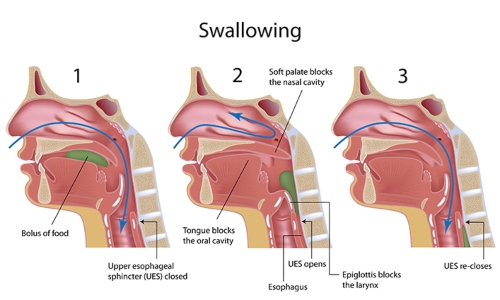
Dysphagia: Symptoms, Causes, Diagnosis, and Treatment in Colorado
Living with a digestive health condition can be challenging. One such condition that we often diagnose and treat at Rocky Mountain Gastroenterology Associates is dysphagia. Dysphagia can cause difficulty in swallowing food or liquids, and it can be caused by various factors. In this article, we will discuss what dysphagia is, its causes, symptoms, diagnosis, treatment, and how to book an appointment with us. We are a leading provider of dysphagia treatment for patients in Colorado.
What Is Dysphagia?
Dysphagia is a condition that affects a person’s ability to swallow food, liquids, or saliva. People with dysphagia may experience discomfort while eating or drinking. In some cases, food or liquid may enter the lungs, causing pneumonia or other lung infections. Dysphagia can affect people of any age, but it is more common among older adults.
What Causes Dysphagia?
Dysphagia can be caused by various factors, such as:
- Neurological conditions such as stroke, Parkinson’s disease, and multiple sclerosis
- Structural abnormalities in the throat or esophagus, such as tumors or strictures
- Gastrointestinal conditions such as gastroesophageal reflux disease (GERD) or achalasia
- Certain medications or treatments such as radiation therapy
Who Is at risk for Dysphagia?
While dysphagia can affect anyone, certain factors can increase a person’s risk, including:
- Older age
- Neurological conditions
- Gastrointestinal conditions
- Having undergone radiation therapy
- Having a family history of dysphagia or other swallowing disorders
What Are the Symptoms of Dysphagia?
The symptoms of dysphagia can vary depending on the severity and cause of the condition. Some common dysphagia symptoms include:
- Difficulty swallowing solid or liquid foods
- Pain or discomfort while swallowing
- Regurgitation of food or liquids
- Coughing or choking while eating or drinking
- Feeling like food is stuck in the throat
- Unintentional weight loss
How Is Dysphagia Diagnosed?
If you are experiencing symptoms of dysphagia, it is important to seek medical attention. At Rocky Mountain Gastroenterology Associates, we can diagnose dysphagia using various tests such as:
- Videofluoroscopic Swallow Study (VFSS) – A type of X-ray that helps evaluate the swallowing process.
- Fiberoptic Endoscopic Evaluation of Swallowing (FEES) – A procedure that involves passing a thin, flexible scope through the nose to examine the throat and swallowing process.
- Esophageal Manometry – A test that measures the strength and coordination of the esophageal muscles.
How Is Dysphagia Treated?
The treatment for dysphagia depends on the underlying cause and severity of the condition. At Rocky Mountain Gastroenterology Associates, we offer various dysphagia treatments, including:
- Speech and Language Therapy – A type of therapy that can help improve swallowing function.
- Dietary Modifications – Changes to your diet, such as eating softer foods or avoiding certain foods, can help improve swallowing.
- Medications – Medications such as proton pump inhibitors or botulinum toxin injections can help alleviate symptoms in some cases.
- Surgery – In some cases, surgery may be necessary to correct structural abnormalities or remove tumors.
Request an Appointment Today
If you are experiencing symptoms of dysphagia, please schedule an appointment with us at Rocky Mountain Gastroenterology Associates. Our team of experts can diagnose and treat your condition, and help you get back to enjoying your favorite foods and drinks. Contact us today to book an appointment.
Go back